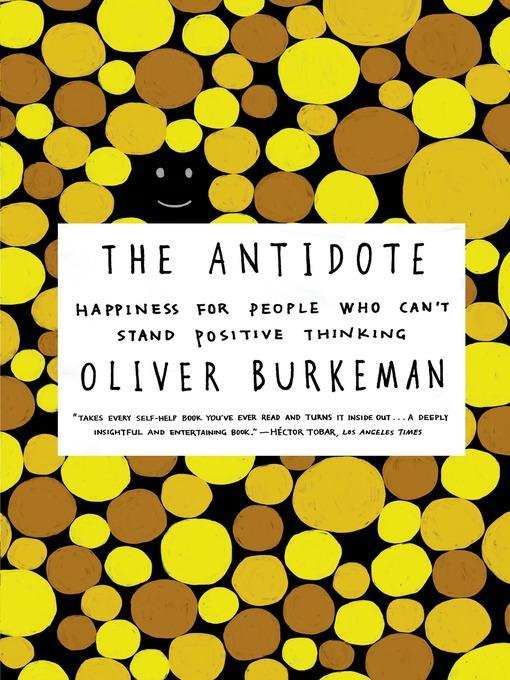
The Antidote
Happiness for People Who Can't Stand Positive Thinking
کتاب های مرتبط
- اطلاعات
- نقد و بررسی
- دیدگاه کاربران
نقد و بررسی

September 10, 2012
This is a self-help book for cynics. Guardian feature writer Burkeman (Help!) makes the compelling observation that even with the mass production of books on attaining happiness, the collective mood has failed to rise. It has, if anything, fallen. Burkeman’s aim is to endorse a “negative” path to happiness, a route in which happiness is no longer the final destination because serenity is not a fixed state, and trying so hard to be happy is part of what makes us so miserable. Burkeman balances the ideas of the deepest thinkers, thoughts on mortality, and his own foray into Buddhist meditation with tremendously funny anecdotes about the antics of motivational convention attendees and his humiliating attempts at stoicism on the London subway. The version of “happiness” that emerges has no clear set of steps, rather a calm (yet admirably comical) shift from the happy human being to the human who is, simply, being. None of this is new, but Burkeman’s ability to present sentiments in fresh, delightfully sarcastic packaging will appeal to the happy, the unhappy, and those who have already found a peaceful middle ground. Agent: Claire Conrad, Janklow & Nesbit.

Starred review from October 1, 2012
A fascinating, wide-ranging exploration of negativity, positivity, failure, success and what it means to be happy. Guardian feature writer Burkeman's (Help!, 2011) popular newspaper column, "This Column Will Change Your Life," often reads like a more nuanced, erudite version of the writings of Malcolm Gladwell and Jonah Lehrer. Burkeman places a psychological theory at the center and then builds outward. Here, the author begins by poking gentle fun at the shelves of "by your bootstraps" optimism-laden positivity books and the motivational seminars that offer a secret, answer or formula. Burkeman quickly pivots to the underlying structure of the book, which is a thoughtful examination of the various alternatives to the optimism-at-all-costs approach. His research yields some surprising, counterintuitive results, with examples of how embracing goal-setting as essential to achievement and profit can blind those involved to a need for change, should the goals prove to run counter to the original aim. By Burkeman's report, this is a difficult pill for businesspeople to swallow, but noting the effect of relentless goal pursuit on the Mt. Everest hikers made famous in the book Into Thin Air suggests that single-mindedness can be dangerous. Throughout the book, the author advises against this single-mindedness, exploring the benefits of keeping an open mind and not careening wildly toward some type of narrowly defined idea of closure or happiness--"the grinning insistence on optimism...or the demand that success be guaranteed." This broad approach toward harnessing our "negative capability" deserves wide readership; the author's nonprescriptive message has the potential to effect genuine, lasting changes for people who find happiness just out of reach.
COPYRIGHT(2012) Kirkus Reviews, ALL RIGHTS RESERVED.

























دیدگاه کاربران